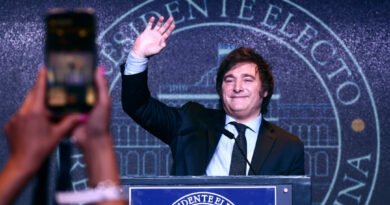Lawmakers and Activists Urge Action Against China’s ‘Highly Complex and All-Encompassing’ Transnational Repression
CCP transnational repression, which aims to silence dissenting voices, was brought to the attention of a U.S. congressional body during a hearing on Sept. 12. The Chinese Communist Party’s (CCP) transnational repression is a widespread campaign that goes beyond its borders and suppresses those who disagree with the party. Witnesses, including lawmakers and dissidents, provided testimony before the Congressional-Executive Commission on China (CECC), a bipartisan panel. In his opening remarks, Rep. Chris Smith (R-N.J.), co-chair of the CECC, stated that the CCP has launched a coercive campaign against anyone who opposes the party. The hearing discussed various cases related to the CCP’s transnational repression, including the attempted destruction of a sculpture in California and the spying on an artist critical of the CCP. Sen. Jeff Merkley (D-Ore.), co-chair of the CECC, described the number of uncovered cases related to transnational repression as disturbing and emphasized that there are likely many more unreported instances. In response to these issues, Sen. Merkley introduced a bipartisan bill, the Transnational Repression Policy Act, aimed at holding foreign governments accountable for stalking, intimidating, or assaulting individuals across borders. Yana Gorokhovskaia, research director for strategy and design at Freedom House, highlighted that the CCP’s transnational repression accounted for about 30 percent of all incidents recorded by her organization. The campaign targets a diverse range of individuals, including journalists, students, artists, and religious groups such as Uyghurs, Tibetans, and Falun Gong practitioners. Lawmaker Michael Chong, who was targeted by the Chinese regime, shared his experience during the hearing, demonstrating how Beijing’s transnational repression works. Chong, a Canadian member of Parliament, has criticized the regime’s repression both within and outside China. He revealed that a Chinese diplomat had gathered information to target him and his family in Hong Kong. Chong also highlighted the CCP’s use of disinformation campaigns on Chinese-language social media platforms such as WeChat. The hearing also discussed the presence of Chinese police stations in foreign countries, which Safeguard Defender, a human rights group, uncovered. These police outposts, which operate in more than 53 countries, are a result of cooperation between China’s public security authorities and overseas groups with ties to the CCP’s united front system. The Chinese authorities claimed that these stations were for assisting overseas Chinese with tasks like renewing driver’s licenses, but evidence suggests a link to coercion and foreign influence operations. The hearing highlighted the need for democratic countries to take a comprehensive approach in addressing transnational repression and the CCP’s influence operations to protect targeted communities and individuals.
Source link




